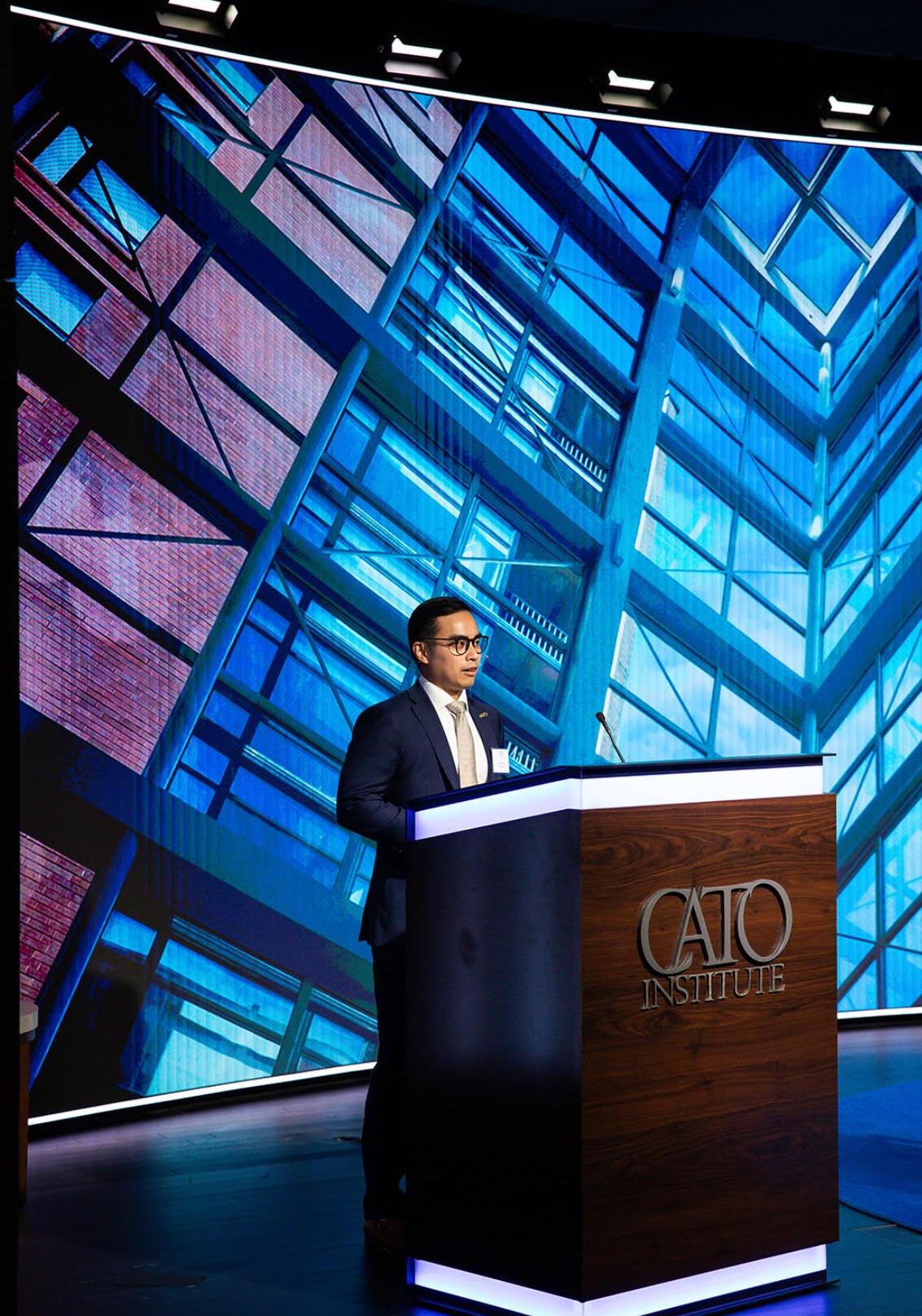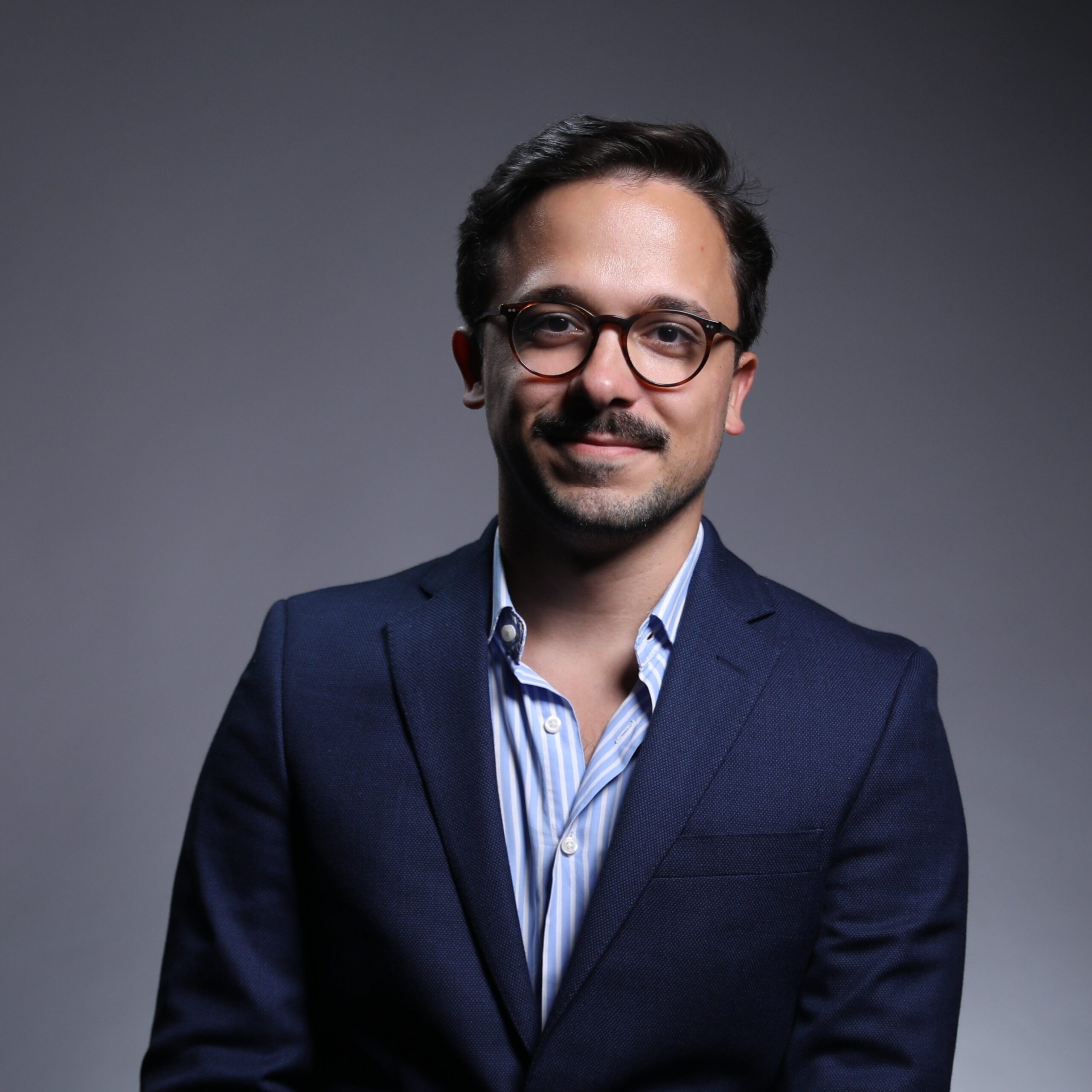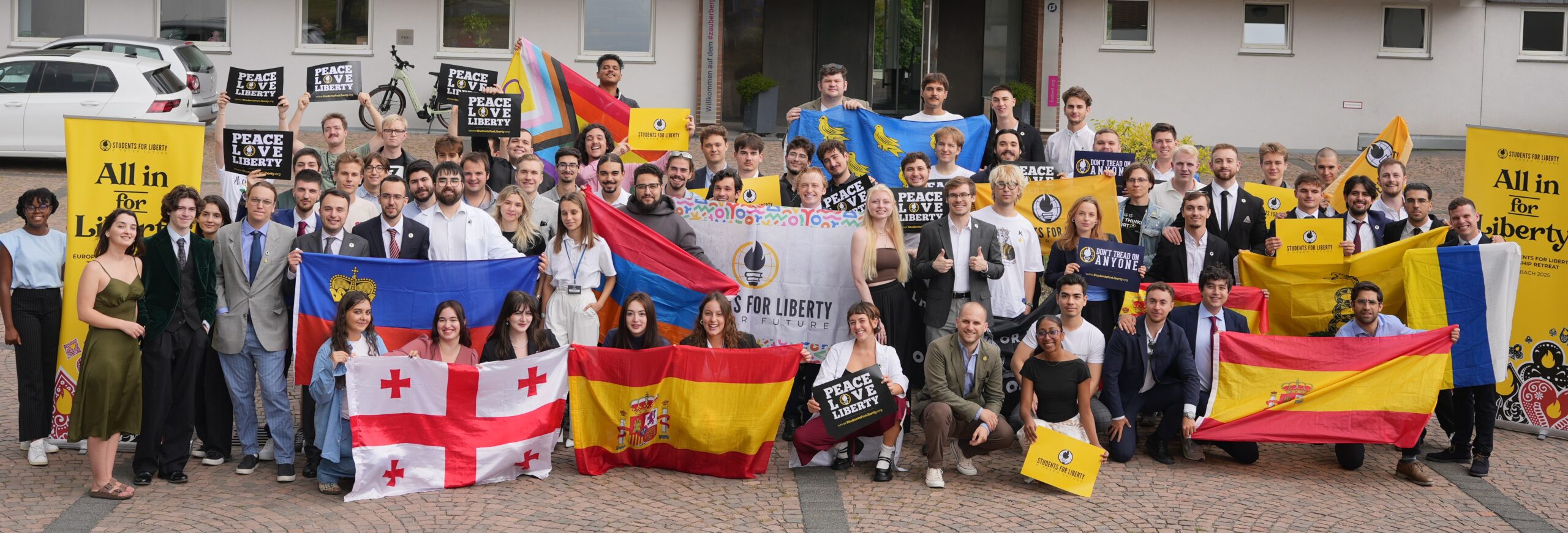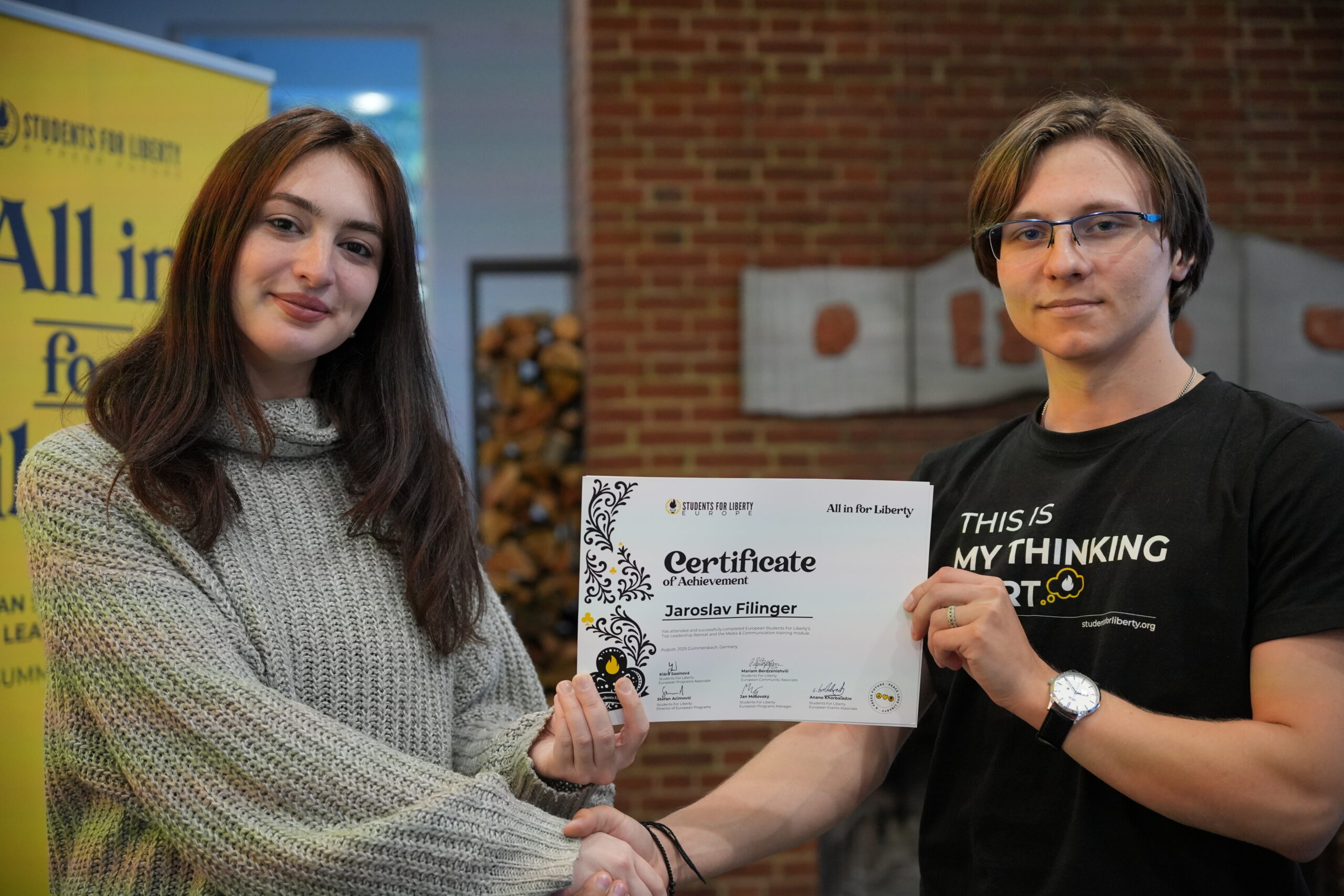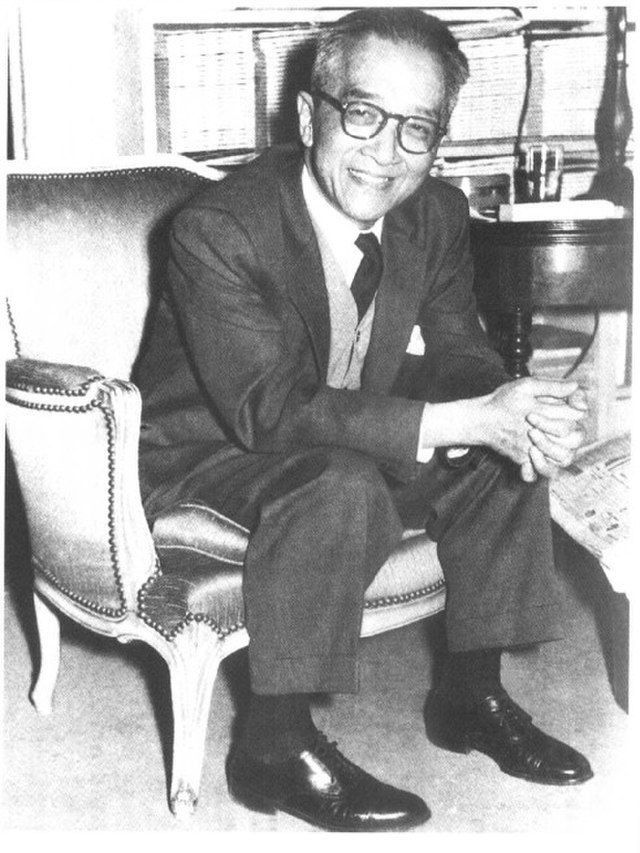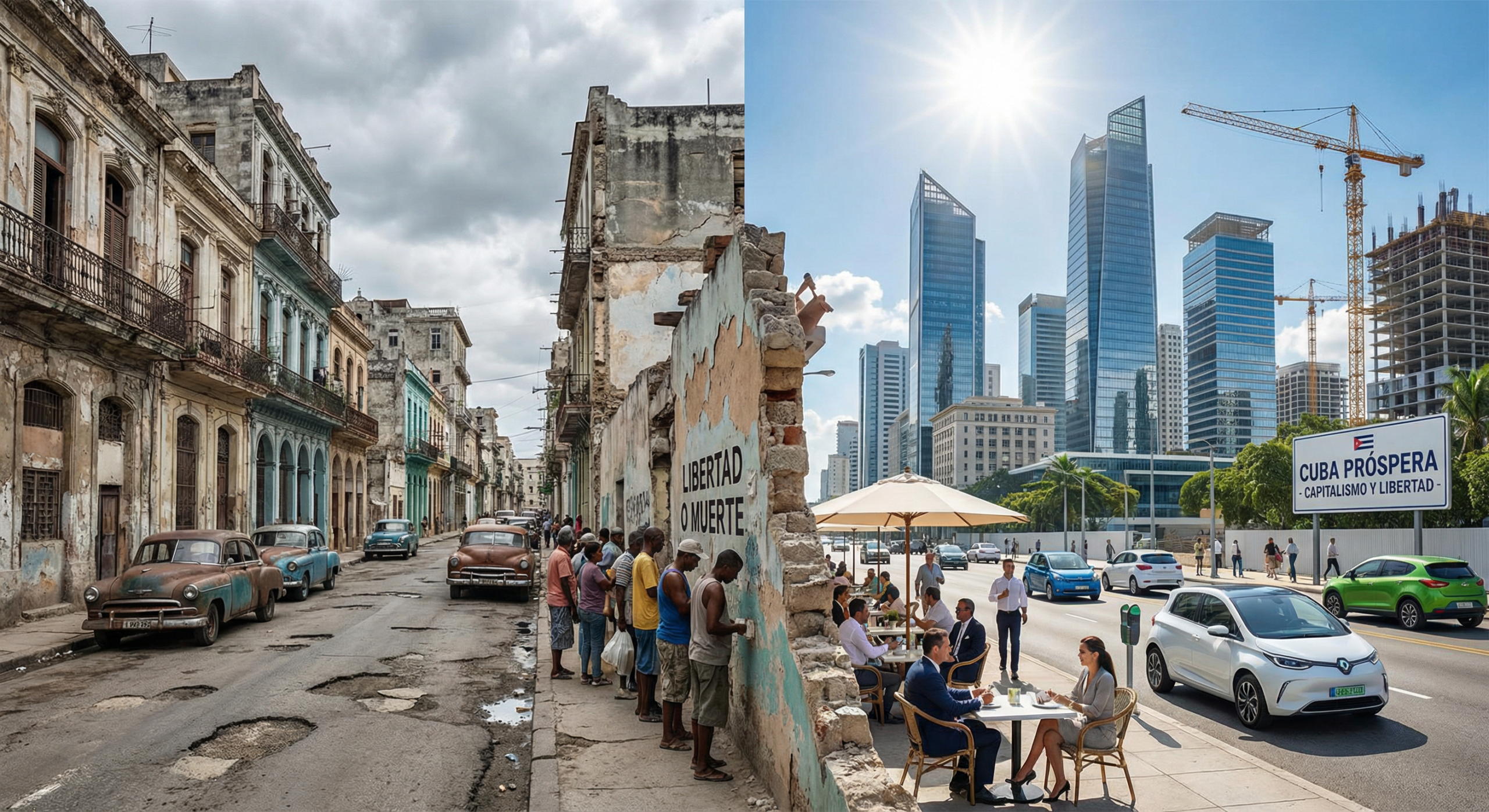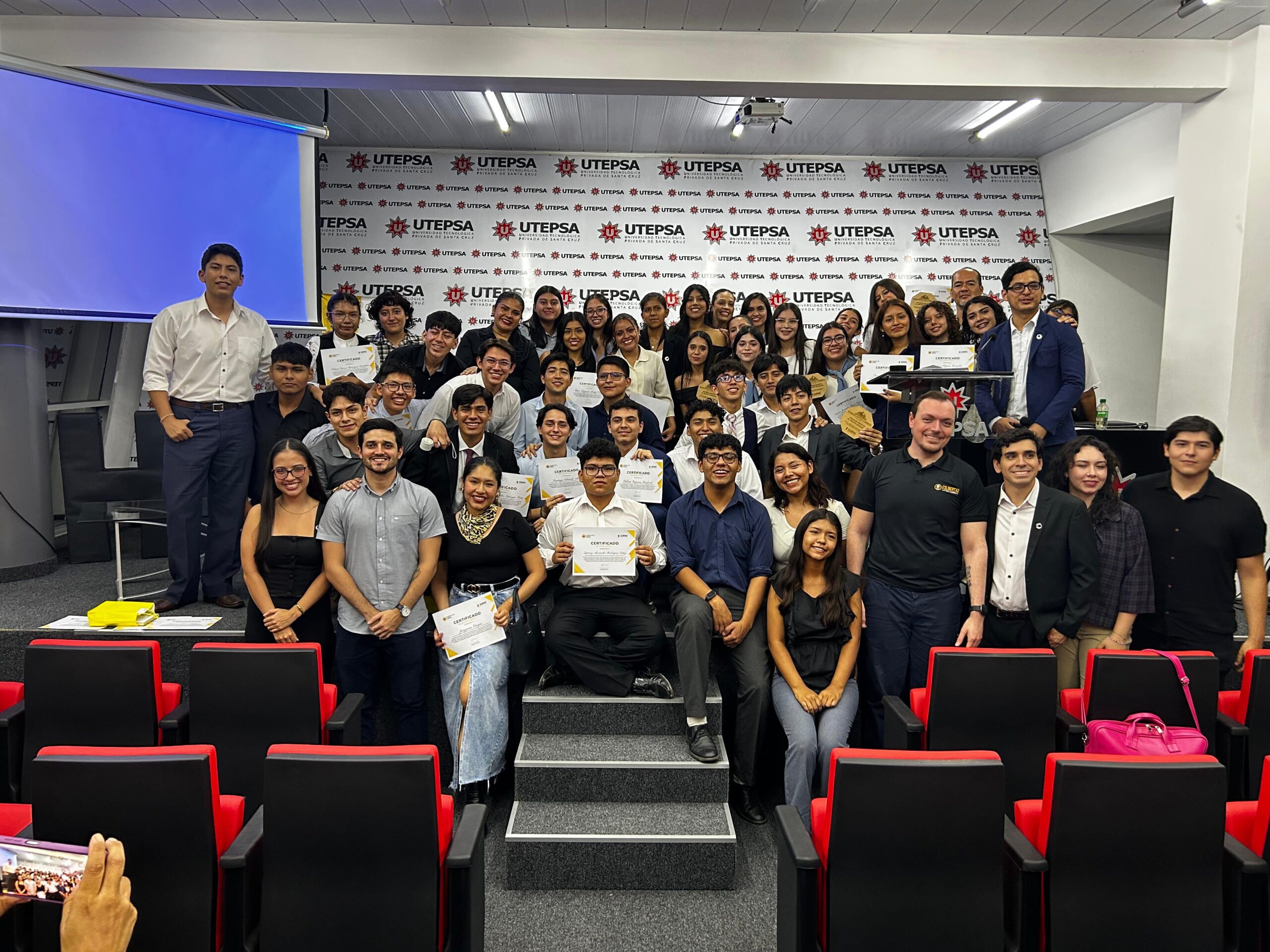When I was asked to give a keynote speech recently, I considered it a great honor; the product of my hard work, professional development, and the grace of the organizers.
I was asked to propose a vision for how former Cato interns could stay involved with the organization’s mission in the future. But I couldn’t help thinking about the past; how, just a couple of years ago, this day, this honor, and my current position as Legal Associate at Cato would have been unthinkable.
I realized: I would not be here without Students For Liberty.
The Meaning of SFL
At first, it seemed strange to attribute such a big role to SFL. After all, SFL did not teach me how to analyze statutes or the nuances of constitutional law. I learned that in law school.
But SFL did give me the confidence to be something more than I ever thought I could, and at times, the connections to who and what mattered most. To put it another way: SFL helped me make lifelong friends. And what could be more important than that?
Of course, SFL is also where I first engaged in activism and learned about interesting philosophical ideas. That’s important too.
SFL found me, or I found it, during my second year in college. I didn’t have much to offer in terms of leadership in the liberty movement or any real professional skills, nor a policy specialization. The only thing I had done was start a libertarian club where five other people and I met in the basement of our college dining hall.
Moving up: Regional Director
But LibertyCon 2019 was a major step in my development. That weekend, SFL paid for me to fly to Washington, D.C. Almost immediately, my preconceptions of what young people could accomplish were shattered. (Spoiler: They can accomplish a LOT.)
I met students undeterred by threats of jail time; they were that dedicated to spreading ideas about freedom and organizing conferences in some of the most illiberal parts of the world. One student even hosted a conference in Pakistan that was delayed by a terrorist attack. I felt incredibly small and unaccomplished next to these students, but I also felt motivated to be like them.
A few months later, I would get my chance. I was asked to be the regional director for the Northeast, where I was going to college at the time, allowing me to oversee and work with other student leaders around the region. The region was tiny and not terribly active, so I figured I’d try to build it up. And let me tell you: This role changed everything. I learned so much while working with all the different students in my portfolio and pushed myself to the limits.
I helped host region-wide conferences in areas where SFL’s presence had diminished, and, under my leadership, the region grew to become the biggest and best, in terms of membership and activity, within one fiscal year.
Since the process was gradual, I didn’t notice that I too had grown — from some kid trying to feel his way through, to the leader who brought SFL’s Northeast Region to new heights.
Not only that; I had turned into a far more confident, collected, and skilled person.
Then disaster hit.
Covid-19; the country goes into lockdown. Meanwhile, I graduate college without a full-time job. Part of that is my fault for not navigating the job search well, but nevertheless, I was unemployed.
Then I tapped a connection made possible through SFL. I asked my economics professor, also president of the American Institute for Economic Research, if I could join him as an intern. He had heard about some of my work with SFL, so he found a spot for me even though the application window had technically closed
I still work for the AIER to this day, having published more than a hundred op-eds, presented research at conferences across the world … and, of course, I’ve referred numerous, qualified SFLers for internships like the one I had.
House Bastiat
When I enrolled in law school, I thought my time with SFL had come to an end.
SFL programs are mostly for undergraduates, and I had peaked in terms of what I believed I could achieve and what I had time to do. Most of my attention was on law school and my part-time job at AIER. That was enough … or so I thought.
For SFL, I would offer my connections and knowledge if needed, but otherwise, I didn’t see a role for myself. Then the North American Programs Director approached me with a proposition. He wanted me to lead a new professional initiative of SFL: the Bastiat House for Politics, Policy, and Law. It would host programs to identify, cultivate, and connect the next generation of policy wonks with the opportunities they need to succeed.
Being a policy wonk myself, I was all in, and we were off to the races.
A few months later, I was in Utah at the SFL North American Top Leadership retreat, speaking to a camera with the first Bastiat cohort behind me, a new fire in my eyes, explaining how this was the start of something new. Over the following year and a half, House Bastiat experienced ups and downs; some projects worked, some failed, but most importantly, we grew and learned and bonded.
Then, a month later, I learned that a Freedom of Information Act Request I had filed with my then-AIER supervisor, Phil Magness, had been cited by a federal judge alongside numerous others as the basis for halting the Biden Administration’s social media censorship activities. The case would go all the way to the Supreme Court.
Learn more about that story here:
A couple of months later, AIER published a book I had started writing in law school with my supervisor, Ryan Yonk: The China Dilemma?: Rethinking US-China Relations Through Public Choice Theory.
To summarize: Five years ago, I was sitting in the audience at LibertyCon, marveling at the 2019 Student of the Year. Just one year ago, I had been contemplating retiring from SFL.
Now, I’m a published author, work with one of America’s oldest think tanks, and I helped kick off “one of the most important free speech cases to reach the [Supreme] Court in years.” I was soon thereafter nominated for 2024 Global Student of the Year. I found myself standing on stage with the founder of Whole Foods, John Mackey, receiving the same award that had struck me with awe half a decade earlier.
LibertyCon and Beyond
House Bastiat — with all the growing pains, and the ups and the downs — is now solidly expanding, focusing on what ideas worked and learning from what didn’t. We have some exciting events planned in D.C. in collaboration with other liberty-based nonprofits.
Recently, we hosted a sold-out reception with America’s Future featuring two all-star guests: Deirdre McCloskey and Veronique de Rugy. We’re also running an international debate competition, whose finale will take place at LibertyCon International in 2025. (Sign up HERE to see it — and tons more — in person!)
So here I am, having finished law school. This time for real (I think; you never know what twists and turns life will take) I am set to retire from SFL.
It’s been a crazy ride, but a fun one. For the near future, I want to focus on ensuring House Bastiat continues to grow. And, as I laid out in my Cato speech, I will continue to support it both as a professional community AND as a classical liberal social one.
Because liberty doesn’t just need professionals; it needs friends, it needs fellowship, and it needs community.
When I joined SFL in 2018, I was still figuring out how to tie a necktie. Now I’m working at the world’s leading classical liberal think tank and at the helm of House Bastiat, supporting the next generation of policy leaders.
That’s what SFL has done for me. Now I turn the tables: What might SFL do for you?
Are you a student interested in getting involved in pro-liberty activism? By applying to join Students For Liberty’s Local Coordinator Program, you can be supported in promoting the ideas of liberty while also developing your skills and meeting many like-minded students from across the world. Click on the button below to find out more and get involved!
This piece solely expresses the opinion of the author and not necessarily the organization as a whole. Students For Liberty is committed to facilitating a broad dialogue for liberty, representing a variety of opinions.
